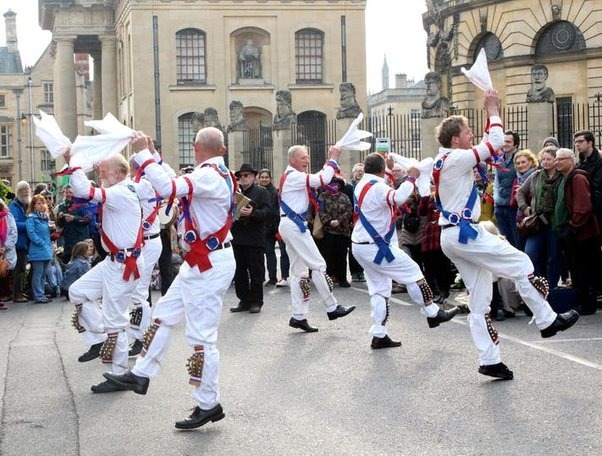Rural traditions in the UK are upheld by local shows.

Agricultural shows in the UK are emblematic of the British summer, blending rural customs with village celebrations to evoke a delightful sense of eccentricity and joy.
Years ago, I found myself tasked with evaluating homemade wines at a local agricultural show. Despite having written under intense World Cup deadlines and addressed audiences at Lord’s Long Room, the judging responsibility brought unforeseen pressure and discomfort. I was acutely aware of the seriousness attached to such competitions and the emotions they stir. It even led to nightmares involving siphoning tubes as potential strangulation devices. Fortunately, my co-judge, more experienced and composed, believed that tasting wines and spitting them into a bucket after swirling was uncultured. Following her lead, I opted to taste a small glass of each entry, which totaled over 20 participants. Within half an hour, my worries transformed into a hazy sense of summer contentment.
However, this was before the pandemic took hold. Today, judging homemade wines in a similar manner would likely result in a hospital visit due to the sheer volume and diversity of entries. During lockdown, people across the nation revisited traditional crafts, including baking, brewing, and winemaking. As a result, submissions for the industrial tent at agricultural shows, initially meant for rural artisans but now encompassing everything from baking and children’s art to knitting, jam-making, and photography, have surged. Governed by intricate regulations and stark honesty, it’s an arena reserved for the resolute. I witnessed a bread entry in a North Yorkshire event dismissed with a handwritten declaration: “This is not a loaf!!!” Each exclamation mark felt like a piercing blow. A friend who submitted chive-infused cheese scones to a County Durham show still shudders at the memory of the response.
These county shows, held across the nation in urban centers and remote rural areas, stand out as cherished highlights of the Great British summer. Rooted in agriculture, these events encapsulate the spirit of the village fete, resulting in wonderfully idiosyncratic celebrations. Particularly since the relaxation of anti-Covid measures, their popularity has been on a steady rise.
This year, renowned events broke records: the Great Yorkshire Show achieved its highest-ever ticket sales in its 185-year history, the Royal Highland Show broke its attendance record, and the Northumberland County Show saw a remarkable 25% increase in admissions compared to pre-lockdown figures. A growing interest in local ecosystems and food production, coupled with rising living costs, has pushed people toward seeking affordable entertainment closer to home. It’s important to note that many of these shows operate as registered charities and rely on volunteer support.
At the core of these events lies the industrial tent, an unmissable experience. Here, you’ll find a surreal mix of events, from fruit scone competitions to contests where children craft animals out of vegetables (expect cucumber crocodiles galore). As a friend once aptly said after happily exploring the “garden-on-a-plate” exhibits for half an hour, “Why venture to Papua New Guinea or the Amazon to witness the exotic and the bizarre when it’s right here on your doorstep?”
You’ll also encounter stalls offering an array of goods, from cakes, plants, and whimsical doormats to fishing-fly artwork and hand-painted salt dough sheep. Tents managed by societies like the Country Land and Business Association and the Game & Wildlife Conservation Trust will be present, alongside trade stands showcasing companies specializing in dairy hygiene. Eventually, you’ll come upon the livestock, historically a central component of any show.
In the mid-18th century, Britain faced a population surge during the Industrial Revolution, which brought the country perilously close to famine. Just as manufacturing had rapidly transformed, British agriculture needed to evolve. Forward-thinking farmers like Thomas Coke, Lord Townsend, and Robert Bakewell emerged as agricultural pioneers. They established county agricultural societies advocating novel scientific methods for livestock breeding and crop management. However, their efforts went largely unnoticed.
Somewhere along the line, possibly conceived by Coke, the agricultural show was born. These shows aimed to showcase and explain the progress achieved, demonstrating the superiority of new methods. To encourage commendable practices, prizes were awarded to the finest stock and produce. These events were both enlightening and forward-looking, driven by purpose and gravity. For entertainment, the circus was a suitable alternative.
Most large shows boast an impressive display of thousands of animals exhibited in various forms. Interestingly, Britain is home to more types of farm animals than any other nation.
In enclosures housing sheep, farmers lean against fences, engrossed in observation, casual scratching, and conversations. The atmosphere resonates with their discussions, mixing with the hum of electric clippers used in shearing competitions and the apprehensive, throaty warbling of the sheep. The latter sound falls somewhere between Edith Piaf’s voice and the murmurs of a baby monitor.
Prominent county shows host a contest for honors, featuring nearly 30 distinct breeds of sheep. Among them are the stately grey Herdwicks, whose survival owes much to Beatrix Potter’s efforts, and the robust Ryelands, renowned for their substantial wool quality once affectionately dubbed “Leominster Ore.”


